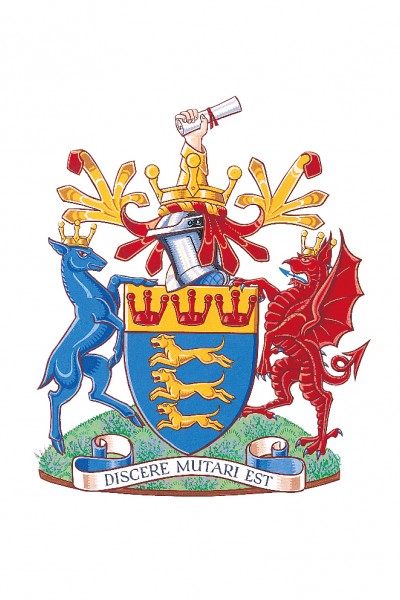Today, BU is home to more than 19,000 students and over 1,500 staff. We contribute more than £1 million a day to the local economy and our research has a global impact. We work with some of the biggest names in industry and you can find our alumni in senior positions in organisations across the globe. All this has been achieved from relatively humble beginnings.
The history of BU
Our origins can be traced to the early 20th century, with the foundation of Bournemouth Municipal College. Our modern history began in the early 1970s with the creation of the Bournemouth College of Technology and the construction of new buildings on the largest farm in Talbot Village – the area now known as our Talbot Campus.
By the time the new buildings were completed, in 1976, the Dorset Education Committee had reviewed the way it provided further and higher education throughout the county. The result was that our name changed again, this time to the Dorset Institute of Higher Education.
In 1990, we successfully met the requirements of the Polytechnics and Colleges Funding Council and became Bournemouth Polytechnic, but that name only lasted a little over two years. Under the Further and Higher Education Act 1992, we finally became Bournemouth University, with an inauguration ceremony on 27 November that year.
As a full university, we were able to validate our own degrees for the first time and we have grown steadily ever since. Today, we're proud to offer almost 140 undergraduate degrees and more than 100 Master's degrees. We conduct world-leading research and our academic staff are heavily involved in developing professional practice in many different industries.
Our coat of arms
When we became Bournemouth University in 1992, we were granted a coat of arms by the College of Arms.
The three dogs on the shield are Talbots – traditional heraldic beasts. They represent the fact that we have a campus on Talbot Heath and also show the close connection with the Talbot Village Trust. The Talbots are on a blue background, representing the sea. The three crowns on the shield are Saxon crowns representing the ancient kingdom of Wessex and the three boroughs of Bournemouth, Poole and Christchurch. They are red on a gold background.
The hand rising out of the helmet is a traditional heraldic representation of learning. The translation of the motto 'Discere Mutari Est' is 'To Learn is to be changed'.
The shield is supported on the right by a dragon in red, representing Dorset, as the dragon is part of the bearings of the county. Supporting the shield on the left is a blue hart, representing Hampshire (the hart being part of the bearings of that county).
